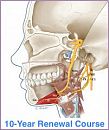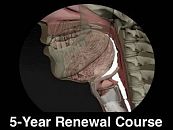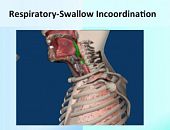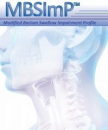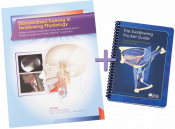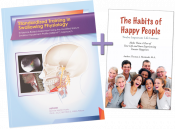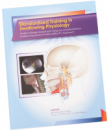Dysphagia Assessment: A Comprehensive Review Of Evidence-Based Practice #e137
Presenters: multiple experts
Learn strengths and limitations associated with various assessment methods and how to apply this knowledge clinically.
– J.D., prior course participant
Read more comments about this course!
This comprehensive assessment course is presented by 5 leading experts in the field of speech-language pathology. Included will be both instrumental and non-instrumental diagnostic methods available when assessing an individual with dysphagia. Discussed will be dysphagia screenings, bedside evaluations, FEES, MBS study, MRI, EMG, cranial nerve, manometry and more. Special considerations are given to motor and sensory factors. The importance of using standardized assessment protocols is stressed.
Participants will learn advantages, strengths, and limitations associated with various assessment methods and how to apply this knowledge clinically for more accurate diagnosis, better targeted treatment planning, and more positive patient outcomes. Specific diagnostic groups discussed include neurodegenerative disease, respiratory disorders, head & neck cancer, stroke, Parkinson's disease, COPD, TBI, tracheostomy and dementia.
Course is offered for 1.0 ASHA CEUs – 10 Contact Hours.
Course Overview – Run Time: 10:24:57
- Evidence-Based Assessment Protocols & Procedures — Bonnie Martin-Harris (3:01:18).
- Assessment In HNC (Part I) — Paula Sullivan (1:01:28).
- Assessment In HNC (Part II) — Paula Sullivan (58:43).
- Assessment Following Stroke, Neurodegenerative Disorders, and TBI (Part I) — Paula Sullivan (1:08:50).
- Assessment Following Stroke, Neurodegenerative Disorders and TBI (Part II) — Paula Sullivan (1:07:10).
- Evaluation of Swallowing In Patients With Trach Tubes — Roxann Diez Gross (1:14:50).
- Motor Assessment For Swallowing Evaluation — Jacqueline Hind (51:55).
- Assessment of Sensory Systems For Swallowing — Christy Ludlow (1:00:43).
Course Faculty: Bonnie Martin-Harris, PhD, Roxann Diez Gross, PhD, Christy Ludlow, PhD, Paula Sullivan, MS, and Jacqueline Hind, MS.
– J.K., prior course participant
Read more comments about this course!
The content of this online CE course does not focus exclusively on any specific proprietary product or service. Presenter financial and non-financial disclosures may be found in the Presenter & Disclosures area.
Video PowerPoint presentation with author narration & downloadable handout. Stop and re-start the course at any point. Learners retain access to course content after completion for ongoing reference and review.
Reviews
"Clinical bedside assessments and their limitations in everyday practice was a beneficial topic. I liked the specific roles of the cranial nerves as they relate to swallowing function." R.A. (Dec. 2024)
"Neurological issues with stroke and TBI were helpful to discuss. I enjoyed the various presenters." K.S. (Dec. 2024)
"Discussion of the physiology of swallow was beneficial. I liked the presenters." C.J. (Oct. 2024)
"Head/Neck cancer section was helpful. I liked the video examples provided by the presenters." B.D. (Oct. 2024)
"Sensory nerve section and the trach section were beneficial. I liked the variety of topics and speakers." B.M. (Oct. 2024)
"Tracheostomy and head and neck cancer were beneficial topics. I liked the current updated practice." N.A. (Oct. 2024)
"All of the information was beneficial." K.R. (Jul. 2024)
"Head and neck cancer info was a great refresh. I am already very passionate about standardized assessments for swallowing so that information bolstered what I am already doing. I liked the self-paced format." K.C. (Jun. 2024)
"The course was convenient and thorough." P.M. (May 2024)
"It was beneficial discussing trach's. I liked the variety of presenters." C.O. (Jan. 2024)
"Discussing how to use the assessments to diagnose dysphagia was helpful. I liked the exhaustive and detailed information provided and the pictures and diagrams." S.M. (Jan. 2024)
"All of this course was beneficial" C.B. (Nov. 2023)
"It was helpful choosing a dysphagia screening tool and which assessment. I liked the head and Neck Cancer discussion." M.F. (Nov. 2023)
"Clear information. Good information related to dysphagia." M.M. (Oct. 2023)
"Discussing trachs and HNC was helpful. I liked the special topics." E.D. (Sep. 2023)
"Motor examination was beneficial. And learning how dysphagia affects patients with neurogenic disorders (TBI, Stroke, etc)." J.R. (Jul. 2023)
"I found all of this information essential and critical when practicing in medical speech-language pathology. I enjoyed the fact that content was very thorough and that the subject matters were very well explained." Z.M. (Jul. 2023)
"The topic on head and neck cancer was beneficial. I liked the images from MBSImP protocol." A.H. (Jul. 2023)
"This course was very informative. I liked the information on dysphagia." B.H. (Jun. 2023)
"The Head & Neck Cancer section was beneficial. This course was very informative and easy to understand." L.J. (Mar. 2023)
"I liked the TBI information. The course was convenient per my schedule." V.G. (Mar. 2023)
"Review of cranial nerves was beneficial. The course was easy to follow." E.V. (Jan. 2023)
"Evidence-based protocols and procedures for assessment of swallowing function in patients with different types of neurogenerative disorders, HNC, following CVA and TBI, and with a tracheostomy tube." T.O. (Jan. 2023)
"I liked the head and neck cancer section. And ability to stop and start course on my schedule." A.H. (Dec. 2022)
"I loved the information about imaging and sensory nerve damage. I also loved the pace, breadth of content, and knowledgeability of the instructors." M.P. (Dec. 2022)
"This course was so thorough!" J.C. (Nov. 2022)
"All topics explained in great detail." P.M. (Sept. 2022)
"I liked the sections on TBI and HNC. And I loved the MBSImP section - very well presented." P.G. (Sept. 2022)
"Assessment of dysphagia following stroke was beneficial. I liked the follow up on cutting-edge knowledge." H.H. (Aug. 2022)
"Very comprehensive, well organized, clear course." I.B. (Jul. 2022)
"Easy to complete in one-hour blocks. I liked the sections on head and neck cancer." M.B. (Jul. 2022)
"The best current research to support clinical practice. I liked the bedside swallow assessment concepts for various diagnoses." S.T. (June 2022)
"Discussion of nerve innervation was beneficial. Course was very thorough. Please offer more courses like this one!" G.T. (Apr. 2022)
"All the video segments used were very beneficial for learning." R.M. (Feb. 2022)
"I liked the bedside swallow screening tools, and having all the different speakers' perspectives." K.M. (Feb. 2022)
"The motor assessment for swallowing evaluation, assessment of sensory systems, the depth and breadth of knowledge of the presenters. Great course." A.H. (Jan. 2022)
"The sections with information regarding head and neck cancer and nerves were beneficial." C.R. (Jan. 2022)
Course Objectives
- Identify the results of valid and reliable assessment techniques that directly target cross system interactions of the upper aerodigestive tract. Section 1
- Describe appropriate diagnostic procedures based on the relevant clinical question and patient condition (diagnosis, severity, cognitive-communication status) using knowledge of evidence-based techniques. Section 1
- Describe the potential adaptation and compensation patterns of the upper aerodigestive tract that can be identified during instrumental assessment in patients following neurologic and surgical insult. Section 1
- Identify the mechanistic and functional cross-system interactions between respiration and deglutition. Section 1
- List the advantages and examples of standardized assessment and reporting measures for outcome tracking and clinician to clinician communication. Section 1
- Describe the impact of surgery vs. radiation therapy and chemotherapy on swallow function. Section 2
- Describe standard of care assessment guidelines for patients undergoing various head and neck cancer treatment modalities. Section 2
- Describe the role of the SLP in assessing dysphagia throughout the continuum of care. Section 3
- List various head and neck cancer outcome tools in the areas of health status, function, and quality of life. Section 3
- List clinical features associated with poor initial and final swallowing outcomes following stroke and TBI. Section 4
- Describe what components compromise an appropriate dysphagia screening tool in neurogenic populations. Section 4
- Describe traditional best practices and commonalities in the assessment of dysphagia following stroke, TBI and in neurodegenerative disease. Section 5
- Describe considerations for an individualized dysphagia assessment following stroke, TBI and in neurodegenerative disease. Section 5
- Describe the basic differences between tracheostomy tubes. Section 6
- Describe how an inflated tracheostomy tube cuff can impact swallowing function. Section 6
- Tell why the specificity of blue dye testing is low. Section 6
- Describe how speaking valves can restore natural subglottic air pressure. Section 6
- Describe the relationship between cranial nerves and functional motor assessment. Section 7
- Describe the role of sarcopenia in motor assessment. Section 7
- List the pros and cons of technology available to facilitate motor evaluation for swallowing assessment. Section 7
- Describe sensory innervation of the swallowing system. Section 8
- Describe the role of sensation in swallowing. Section 8
- Describe how to assess sensory systems for swallowing in a clinical setting. Section 8
- Describe how each sensory system can be important for triggering swallowing, monitoring feedback during swallowing, and response to aspiration during swallowing. Section 8
- Describe which patients are at risk of sensory deficits. Section 8
- Describe future needs and current procedures to follow in a clinical setting. Section 8
Presenter & Disclosures
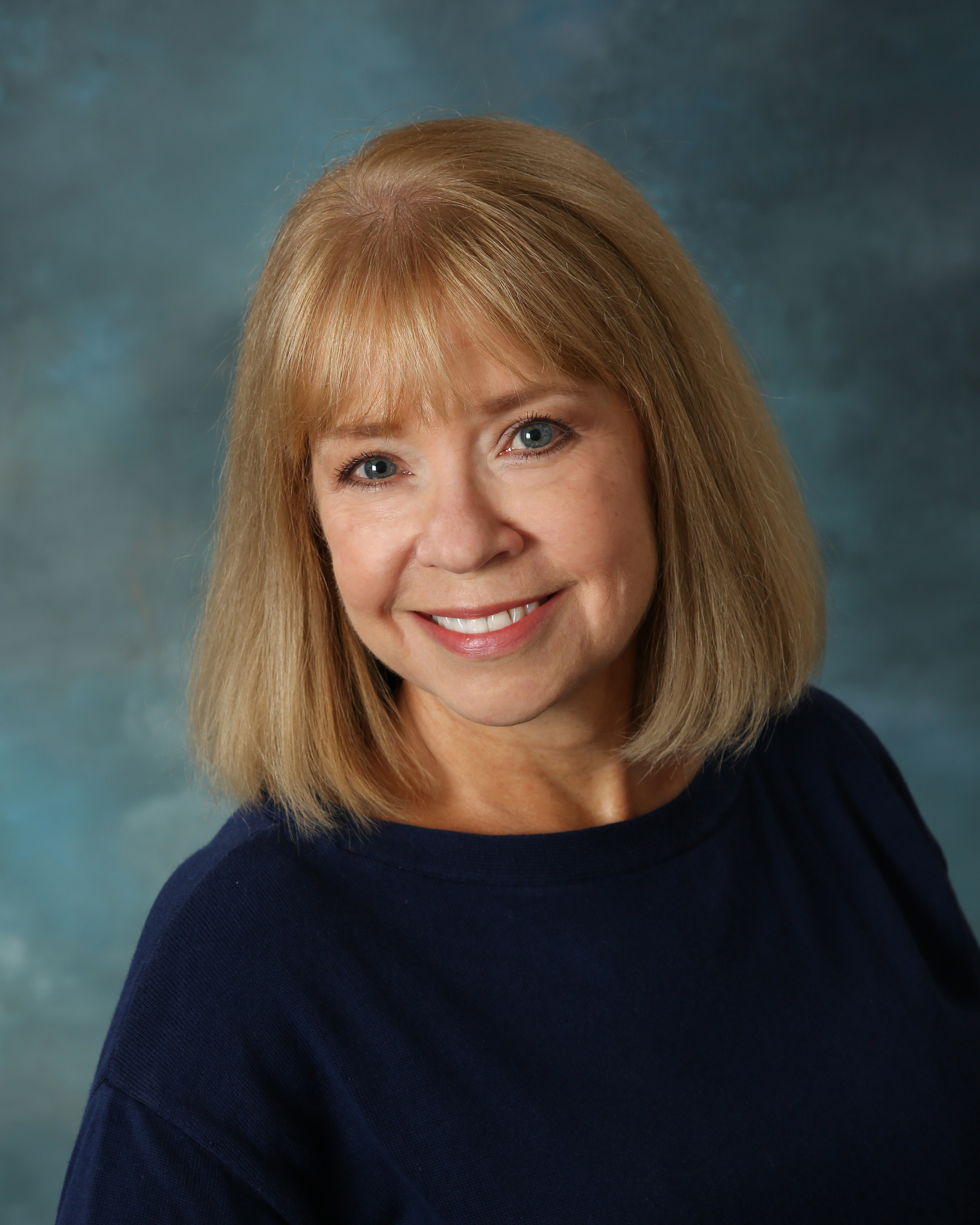
Roxann Diez Gross, PhD, CCC-SLP, ASHA Fellow, is a leading expert, accomplished researcher, and frequently invited national and international lecturer. Her areas of expertise include swallowing function, esophageal dysphagia, and management of patients with tracheostomy tubes and speaking valves.
Currently, Dr. Gross is a consultant and clinical specialist for Swallowing Diagnostics, Inc., Parkland, FL. She was the Director of Research at The Children's Institute in Pittsburgh, PA., and prior to this position, she was Director of the Swallowing Disorders Center at the University of Pittsburgh Medical Center and Assistant Professor of Otolaryngology in the School of Medicine.
Dr. Gross has published several scientific papers and clinical book chapters. Most recently, she was the primary editor of a case study textbook that focuses on tracheostomy and ventilator dependence in adults and children. Her primary area of research examines interactions between breathing and swallowing in neurologic and respiratory disease. Over the past 10 years, she has expanded her clinical work and research to include non-pathologic forms of esophageal dysphagia.
Speaker Disclosures:
Financial — Roxann Diez Gross is presenter of online CE courses by Northern Speech Services; receives royalties.
Nonfinancial — Roxann Diez Gross has no relevant nonfinancial relationships to disclose.

Jacqueline A. Hind, MS, CCC-SLP, BCS-S, is an accomplished clinician, researcher, and inventor. Her work in adult dysphagia has been published in numerous peer-reviewed journals and she was a regional principal investigator for the largest NIH-funded, randomized clinical trial in swallowing. Ms. Hind is an Outreach Program Manager and Coordinator of the Swallowing Speech And Dining Enhancement Program (SSWAL-ADE) at the University of Wisconsin and at the Geriatric Research Education and Clinical Center within the William S. Middleton Memorial Veterans Hospital in Madison, WI.
Speaker Disclosures:
Financial — Jacqueline Hind is a presenter of online CE courses sponsored by Northern Speech Services; receives royalties.
Nonfinancial — Jacqueline Hind has no relevant nonfinancial relationships to disclose.

Christy Ludlow, PhD, CCC-SLP, (Retired) is one of the premier researchers in the field of Speech-Language Pathology. Dr. Ludlow specializes in voice and swallowing neurophysiology and disorders and is a frequently invited international lecturer on the diagnosis and management of voice and swallowing disorders. Dr. Ludlow's research has been published in numerous leading peer-reviewed journals covering neuroimaging, neurophysiology, dysphagia and Speech Pathology, among others.
Dr. Ludlow recently retired as Professor in the Department of Communication Sciences and Disorders at James Madison University in Virginia where she taught courses on voice, neuroanatomy, neurophysiology and clinical trials. She also developed the Laboratory on Neural Bases of Communication and Swallowing and currently is active in research focusing on the role of sensory feedback in neural control for voice, speech, and swallowing; the use of sensory enhancement during motor training for recovery from dysphagia; and the diagnosis and assessment of spasmodic dysphonia.
Speaker Disclosures:
Financial — Christy Ludlow is a presenter of online CE courses sponsored Northern Speech Services; receives a royalty.
Financial — Christy Ludlow serves as a research consultant for StimSwal; receives payment.
Financial — Christy Ludlow authors books on building a research career and measuring voice, speech and swallowing for Plural Publishing, Inc.; receives a royalty.
Nonfinancial — Christy Ludlow has no relevant nonfinancial relationships to disclose.
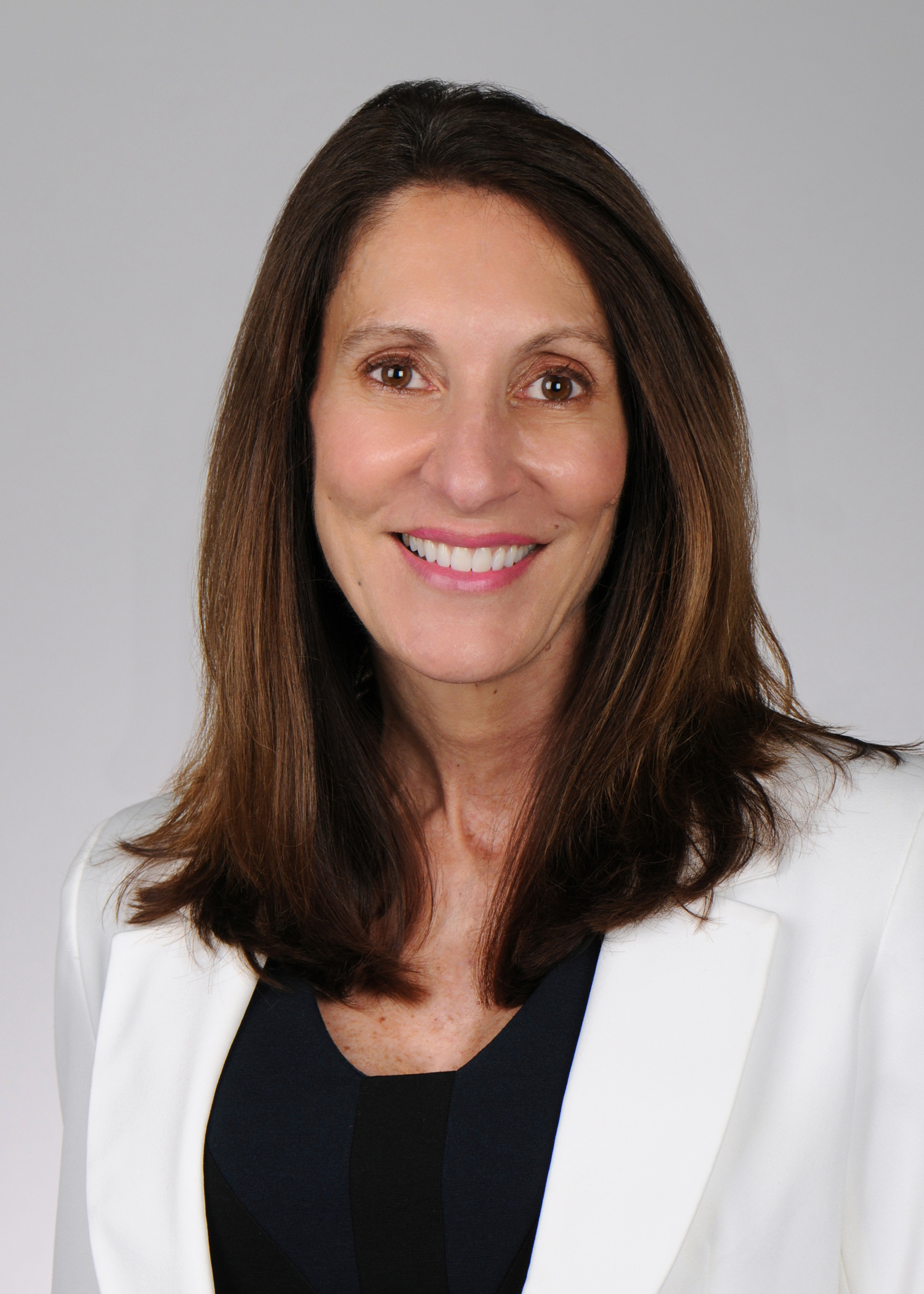
Bonnie Martin-Harris, PhD, CCC-SLP, BCS-S, ASHA Honors, is the Alice Gabrielle Twight Professor in the Roxelyn and Richard Pepper Department of Communication Sciences and Disorders, and Associate Dean for Academic Affairs in the School of Communication at Northwestern University. She is also Professor, Otolaryngology-Head and Neck Surgery and Radiation Oncology, Feinberg School of Medicine.
She is a Past-President of the Dysphagia Research Society, past Chair of the Specialty Board for Board Certification in Swallowing and Swallowing Disorders (BCS-S), and Associate Editor for the Dysphagia Journal. She is an ASHA Fellow, recipient of the 2016 Admiral Albert J. Baciocco Innovation Award – Medical University of South Carolina (MUSC), The 2017 12th Annual Pepper Lecturer, Northwestern School of Communication, Honorary Member of the MUSC Chapter of The National Academy of Inventors, recipient of Honors from the South Carolina Speech-Language-Hearing Association (SCSHA), 2010 MUSC College of Health Professions Scholar of the Year Award, and associate member of the Academy of Otolaryngology-Head and Neck Surgery and the American Head and Neck Society.
Dr. Martin-Harris is the author and developer of the first standardized method for videofluoroscopic assessment of swallowing impairment (Modified Barium Swallowing Impairment Profile, MBSImP™), translated to research and clinical practice in the United States, Canada, and 13 additional countries. She is also the author of the manual, "Standardized Training In Swallowing Physiology—Evidence-Based Assessment Using The MBSImP Approach" published by Northern Speech Services. Her work is funded by the National Institutes on Deafness and Other Communication Disorders (NIDCD), the Veteran's Administration, and the Mark and Evelyn Trammell Foundation.
Presenter Disclosures:
Financial — Bonnie Martin-Harris is presenter of online CE courses sponsored by Northern Speech Services; receives royalties.
Financial — Bonnie Martin-Harris is the author of "Standardized Training In Swallowing Physiology — Evidence-Based Assessment Using The MBSImP Approach" published by Northern Speech Services; receives royalties.
Financial — Bonnie Martin-Harris' former employer, MUSC, receives royalties from Northern Speech related to enrollment tuition of the MBSImP Online Training.
Financial — Bonnie Martin-Harris' MBSImP research and development was funded in part by Bracco Diagnostics; received grant funding.
Financial — Bonnie Martin-Harris' research is funded in part by the Veteran's Administration (VA); receives grant and research funding.
Financial — Bonnie Martin-Harris' research is funded in part by the Mark and Evelyn Trammell Foundation; receives grant funding.
Financial — Bonnie Martin-Harris' research is funded in part by the National Institutes on Deafness and Other Communication Disorders (NIH/NIDCD); receives grant and research funding.
Nonfinancial — Bonnie Martin-Harris is associated with numerous journals, publications, and boards related to speech-language pathology; receives no compensation in these roles.

Paula A. Sullivan, MS, CCC-SLP, BCS-S, currently is a Senior Speech-Language Pathologist in the Department of Neurology/Speech Section, North Florida/South Georgia Veterans Health System in Gainesville, FL. Paula's clinical expertise and research are focused on swallowing disorders in head and neck cancer and at end-of-life. She has been affiliated with numerous comprehensive cancer centers, including H. Lee Moffitt Cancer Center, Tampa, FL, Sylvester Cancer Center, Miami, FL, and the University of Wisconsin, Madison, WI. Paula also has participated as part of numerous clinical research trials in swallowing.
Paula served as a co-regional primary investigator for the largest controlled, randomized research trial in oropharyngeal dysphagia funded by the National Institutes of Health (Protocol 201). Protocol 201 examined the effectiveness of chin down and thickened liquids in individuals with dementia and Parkinson's disease both with and without dementia. Additionally, Paula has published numerous articles, book chapters, and co-authored books, including Swallowing Intervention in Oncology and the Easy-To-Swallow, Easy-To-Chew Cookbook. She also has co-authored multiple national guidelines, directives, and policies relating to oropharyngeal swallowing disorders for both the Veterans Health Administration and the American Speech-Language-Hearing Association (ASHA). She is a board recognized specialist in swallowing and swallowing disorders. Paula is an ASHA Fellow and former coordinator of ASHA's Division 13, Swallowing and Swallowing Disorders. She was named "2013 Clinician of the Year" by the Association of Veterans Affairs Speech-Language Pathologists.
Speaker Disclosures:
Financial — Paula Sullivan is a coauthor of the text, "Easy-To-Swallow; Easy-To-Chew Cookbook"; receives royalty payments.
Financial — Paula Sullivan is a presenter of online CE courses sponsored by Northern Speech Services; receives royalties.
Nonfinancial — Paula Sullivan has no relevant nonfinancial relationships to disclose.
Intended Audience / Accreditation

This program is offered for 1.0 ASHA CEUs (Intermediate Level; Professional Area).

Intended Audience
- Speech-Language Pathologists
ASHA CEUs: NSS online courses are registered with ASHA and are offered for ASHA CEUs. The number of ASHA CEUs is noted above. Note that 0.1 ASHA CEU = 1 contact hour = equals 1 CEE.
ASHA CE Registry: During the enrollment process, if you select to receive ASHA credit for this course and if you provide your ASHA number, NSS will automatically submit your CEU information to the ASHA CE Registry after successful course completion (80% on post test). This submission happens once per month, during the first week of the month. For example, if you complete your course on November 7th, NSS will submit all November online course CEUs to ASHA during the first week of December. When ASHA inputs the information into their database, they will mark the course as completed on the last day of the month in which it was completed, so November 30th using this example. The certificate of completion available for you to print immediately, however, will reflect the actual completion date, November 7th in this example. Due to ASHA processing procedures please allow 2-3 weeks, from the submission date, for the course to appear on your ASHA transcript.
ASHA CEUs: Attendees must meet at least one of the following conditions in order to be eligible to earn ASHA CEUs:
- Current ASHA Member
- ASHA Certificate of Clinical Competence (CCC) Holder
- Licensed by a state or provincial regulatory agency to practice speech-language pathology (SLP) or audiology
- Credentialed by a state regulatory agency to practice SLP or audiology
- Credentialed by a national regulatory agency to practice SLP or audiology
- Engaged in a Clinical Fellowship under the supervision of an individual with their ASHA CCC
- Currently enrolled in a master's or doctoral program in SLP or audiology
If an attendee is not an ASHA member or CCC holder but meets any of the above criteria, they may inform the ASHA CE Registry of their eligibility by visiting this site.
Licensing Boards: Most state licensing boards DO accept CEUs earned online (usually classified as home-study credits). Some state boards do, however, place a limit to the number of credits that can be earned via home study/online courses. For the most current information, we suggest that you contact your licensing board or agency to verify acceptance policies and/or any credit limits related to home-study courses prior to registering for this course.
Additional accrediting agencies by which Northern Speech is an approved CE provider:
- California: NSS is approved as a provider of continuing education by the California Speech-Language Pathology & Audiology Board. Provider #PDP4. Online CEU limits may apply; please contact SLPAHADB for current online CEU acceptance policies.
- Iowa: NSS is approved as a provider of continuing education by the Iowa Board of Speech Pathology and Audiology Examiners. Provider #169.
- Kansas: NSS is approved as a provider of continuing education by the Kansas Department of Health and Environment. Provider #LTS-S0005.
Frequently Asked Questions
Customer Support: Please phone 888.337.3866 or email info@northernspeech.com.
Course Completion Timeframe:
You have unlimited time to complete our online courses. You may log off and log on as often as you’d like to in order to complete all sections of a course.
However, completion dates are based on Eastern Standard Time. Therefore, if you need your CEUs by a certain date, be sure to complete the course test before 11:59pm EST on that date. For example, if you need CEUs before January 1st, you will need to complete the course test before 11:59pm EST on December 31st.
Content Access:
Access to course materials and content does not expire, even after completing the post test. You may continue to review course material by logging into your NSS account, clicking the My Online Courses tab, and then viewing your desired course.
Certificate of Completion:
On successful completion of the post test (80%), a certificate will be immediately available for download and/or printing. This certificate will include your name, date of completion (based on Eastern Time Zone, USA/Canada), and number of contact hours (CEUs / CEEs). Please note that CEUs are awarded on the date of successful test completion, not the date of course enrollment. Please ensure that you successfully complete the post test prior to any licensure renewal dates.
ASHA CE Registry Submission:
During the enrollment process, if you select to receive ASHA credit for this course and if you provide your ASHA number, NSS will automatically submit your CEU information to the ASHA CE Registry after successful course completion (80% on post test). This submission happens once per month, during the first week of the month. For example, if you complete your course on November 7th, NSS will submit all November online course CEUs to ASHA during the first week of December. When ASHA inputs the information into their database, they will mark the course as completed on the last day of the month in which it was completed, so November 30th using this example. The certificate of completion available for you to print immediately, however, will reflect the actual completion date, November 7th in this example. Due to ASHA processing procedures please allow 2-3 weeks, from the submission date, for the course to appear on your ASHA transcript.
Purchase Orders:
Purchase orders are currently not accepted for online orders, if you wish to submit a purchase order please do so at info@northernspeech.com or fax to 888-696-9655.
What is an Online Course?
Our Online Courses consist of video, audio, and/or text content and are offered for ASHA CEUs. Unlike a webinar, which requires participants to be logged on and at a computer at specific times, our Online Courses are available to you at any time, from any device, via your NorthernSpeech.com online account. You may work at your own pace and start and stop your course as you wish. Your course will conclude with a short post test. On successful completion of the post test (>80%), a printable certificate of completion is presented to you.
Receiving CEUs:
Northern Speech is an ASHA CE Provider and our online courses are registered with ASHA and offered for ASHA CEUs. Please note that successful completion of the online post test is required prior to the awarding of CEUs. Please contact your state licensing board for acceptance policies related to CEUs earned online. Please note that courses offered for university students are not applicable for CEUs.
Registering for an online course:
You may browse all online courses by clicking the Continuing Education tab above, then Online Courses. Once you find a course, click Enroll Now, and you will be asked to either log into your existing Northern Speech account or create a new online account. Once you’ve entered your account information and provided your credit card payment, your course will be immediately available to you.
Accessing your purchased course or returning to a purchased course:
You will be able to access your online course by logging into your Northern Speech account and then clicking the My Online Courses tab on your profile screen. Click the course you would like to start or to resume. From there, proceed through the course sections until you are ready to complete the post test. You do not have to complete your course all at once. You may log on and off as you wish.
Testing requirements:
Each online course concludes with a post test consisting of multiple choice or true & false questions. Scores of 80% or greater are required for successful course completion and awarding of CEUs. You may revisit course materials and retest as needed to achieve a passing score.
Number of CEUs offered:
We offer courses from 1 to 21 contact hours. Each course will note the number of CEUs offered. Please note that 0.1 CEU = 1 contact hour = 1 CEE.
State licensing boards and online CEUs:
NSS is an ASHA CE Provider and most state licensing boards DO accept ASHA CEUs earned online (usually classified as home-study credits). Some boards do, however, place a limit to the number of CEUs that can be earned via home study/online courses. For the most current information, we suggest that you contact your licensing board or agency to verify acceptance policies and/or any CEU limits related to home-study courses prior to enrolling in an online course.
Course formats:
Our course formats include: text, audio, video, and PowerPoint with author narration. Each course will note the format on the course description page. Most courses include closed captioning.
Course handouts:
Most of our online courses provide a link to download the accompanying handout as a PDF file.
Group discounts:
Groups of 3 or more are eligible for a 20% discount on each registration on most of our online courses. To receive this discount, registrations need to be processed together via the "Group Rates" tab on the Online Course of your choice.
Computer requirements:
For our online courses to function best, we recommend that you update your computer to include the newest version of your Internet browser (Safari, Chrome, Firefox, Edge, Internet Explorer, etc.) and newest version of your computer's operating system. Also a high-speed Internet connection is recommended (cable or DSL). Speakers or headphones will be required for many of our courses as many contain audio components.
Course Cancellation Policy:
A purchased online course can be exchanged, refunded, or transferred to another individual if contact is made with NSS (via phone or email) within 30 days of purchase and the course materials have not been viewed or downloaded.
Special Needs:
Please click here for any special needs requests, and we will do our best to accommodate them.
| Contact Us |









